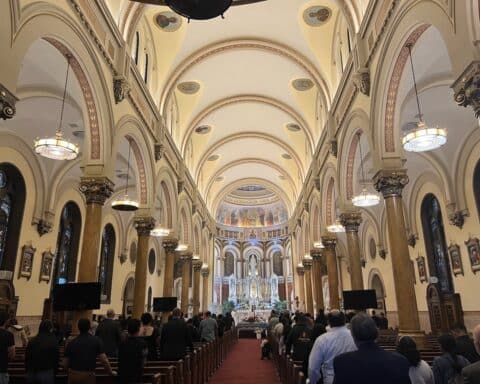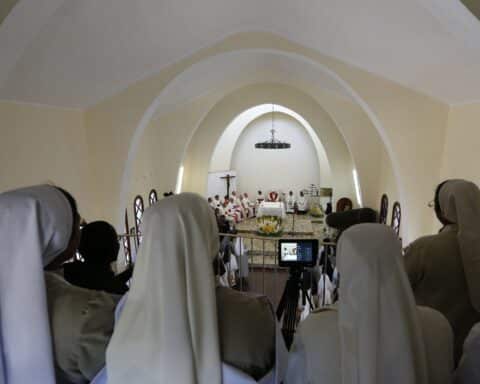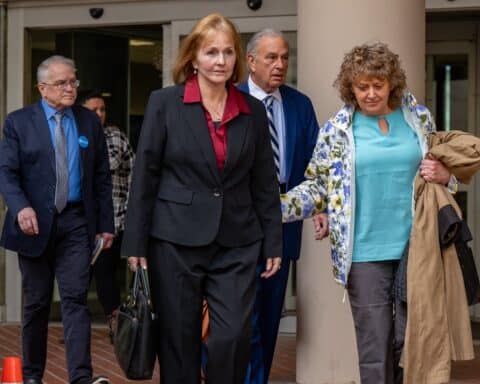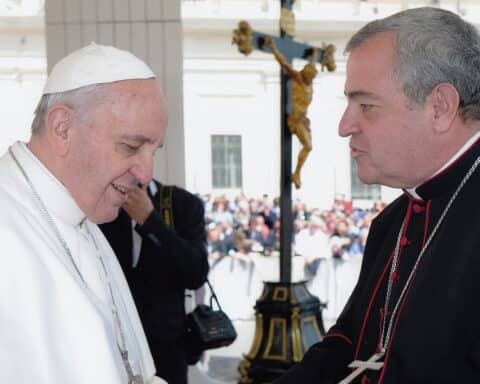The June general assembly of the U.S. Conference of Catholic Bishops began on Tuesday amid high expectations. The Baltimore gathering took the place of a previously scheduled weeklong retreat in Santa Barbara, California, in order to deal with the fallout from the ongoing clergy sexual abuse crisis sooner than November’s regularly scheduled meeting.
During the first day, the bishops approved moving forward with three agenda points related to the abuse scandal that has absorbed the workings of the conference for the past year. They discussed several other agenda items related to issues including immigration policy and revisions to the bishops’ document on faithful citizenship.
Expectations
The bishops heard two strong reports from lay leaders of the consultative bodies known as the National Advisory Council and the National Review Board. Both were quite pointed in laying out the expectations and challenges facing the bishops this week, particularly the need for transparency and accountability.
The bishops also were presented with a report by Los Angeles Auxiliary Bishop Robert E. Barron, chair of the bishops’ committee on evangelization and catechesis, about the growing number of the religiously unaffiliated young people, the reasons for their departure from the practice of the Faith, and signs of hope that they are not lost forever.
This bishops will address the abuse crisis with three documents up for consideration: “Protocol Regarding Available Non-Penal Restrictions on Bishops,” “Acknowledging Our Episcopal Commitments” and “Directives for the Implementation of the Provisions of Vos estis lux mundi Concerning Bishops and the Equivalents.” The first will deal with various restrictions on the ministry of bishops accused of abuse or having mishandled abuse situations. The second will be a statement of moral responsibility on behalf of bishops to live up to their vocation and likely include a pledge that the bishops will adhere themselves to the Charter for the Protection of Children and Young People. The third will involve national implementation of Pope Francis’ motu proprio, Vos estis lux mundi (“You are the light of the world”), which establishes universal legal norms to hold bishops accountable, particularly regarding sexual abuse of minors and vulnerable adults, and the mishandling of any such cases by a bishop. Here, the stakes are particularly high, and the bishops have a chance to again lead the universal Church — as they did with the adoption of the Charter in 2002. The debate on this text later this week will be the one to watch.
Among the expectations that will meet the bishops when they tackle the discussion of these documents later this week will be an inclusion of the laity regarding investigation of bishops accused of misconduct or coverups, as well as the “metropolitan model” for bishop accountability mandated by the pope but which is not without concerns. Lay involvement in the investigation process will need to become an official part of policy and law if it is to be taken seriously, such as is included in the charter. There has yet to be any attempt to provide a theological rationale for why laity cannot be included in such modes of governance.
Other issues up for discussion and vote this week include a revised translation of the texts for the ordination of bishops, priests and deacons; a new directory for the formation and life of permanent deacons; a revision to the U.S. Catholic Catechism for Adults to reflect Pope Francis’ change to the Catechism of the Catholic Church regarding the death penalty; and certain matters of public policy.
Addressing scandal
While such issues are worthy of discussion, one wonders if these additional agenda items might be a distraction from the reason this meeting had been called in the first place. It has been clear for a year that the bishops must squarely address the scandals openly and transparently in order to regain credibility. Not only would that tend to the more immediate wounds inflicted on the Body of Christ because of the scandals, but it would enable the bishops to be taken more seriously where other matters are concerned and renew the moral authority required to speak on a host of important social issues, not to mention the ability to carry on the ordinary and important work of episcopal ministry.
It’s possible that filling the schedule with extra agenda items may further weaken the bishops’ collective voice and distract them from bringing about solutions to the crisis, identifying its root causes and provide assurance of accountability and transparency.
Day 2 of the bishops’ meeting mostly will be taken up with private meetings among episcopal regions (multi-state groupings of dioceses that comprise districts within the USCCB) and provinces (an ecclesiastical jurisdiction, often made up of dioceses in a given state). One other notable item on the agenda for Wednesday will be a vote on implementing a third-party system to report misconduct of bishops.
In sum, the first day underscored the importance of the rest of the meeting, particularly Thursday, when the body of bishops will debate and vote on the three texts related to the crisis itself.





